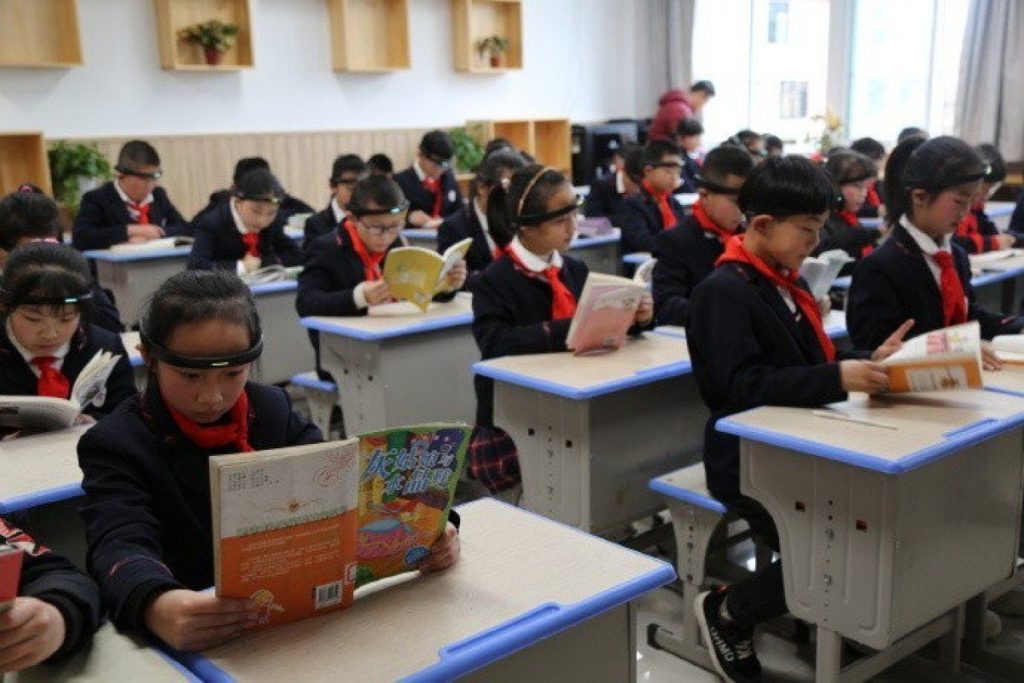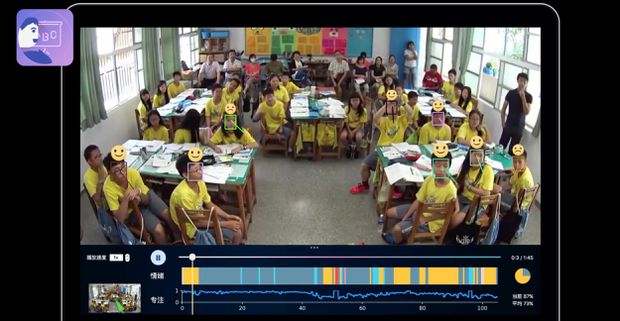A video filmed by the Wall Street Journal of brain-monitoring technology in Chinese classrooms has raised new questions about the appropriate use of surveillance in education. But it’s a US company which produces the headbands used.
The video, which can be seen here, shows children in a Zhejiang primary school wearing the headbands, which use electroencephalography (EEG) to monitor their brainwaves. A light on their head supposedly indicates the extent to which they are paying attention, and data is sent to not only their teachers but to their parents.

The school and pupils report improved performance, but it does not appear that any blind tests have been done for comparison. It is well established that increased attention from teachers leads to better academic performance, and it is possible that simply believing that they are under scrutiny will lead students to work harder. Experts cast doubt on whether a simple headband can obtain reliable EEG data, and a journalist shown in the video wearing one is skeptical about whether it accurately reflects his attention levels.
Despite the lack of evidence for the technology’s effectiveness, the Boston-based company behind it has plans to extend its trials to the US, Mexico, Spain, and Brazil. BrainCo, as if its name was not sufficiently dystopian-sounding, has a promotional video on Youtube which, as thenextweb.com points out, bears more than a passing resemblance to something from Black Mirror (as well as a trailer for what appears to be the worst computer game ever written).

Leaving aside questions of whether it actually works, the technology is another alarming development in the encroachment on children’s privacy. We have previously reported on the Guizhou school which makes students wear uniforms fitted with microchips so they can be tracked, and the use of facial recognition technology to keep children out of internet cafes in Jiangxi. Another Zhejiang school is electronically tracking students’ faces to assess their emotions and attention levels.
All this is of course done in the name of keeping children safe and helping them to excel. However, it might reasonably be asked whether adding to the academic pressure on young people, and accustoming them to a world where even their thoughts are not private, is truly doing the best we can for them.
Photos: www.prnewswire.com, www.heglobeandmail.com, www.scmp.com




